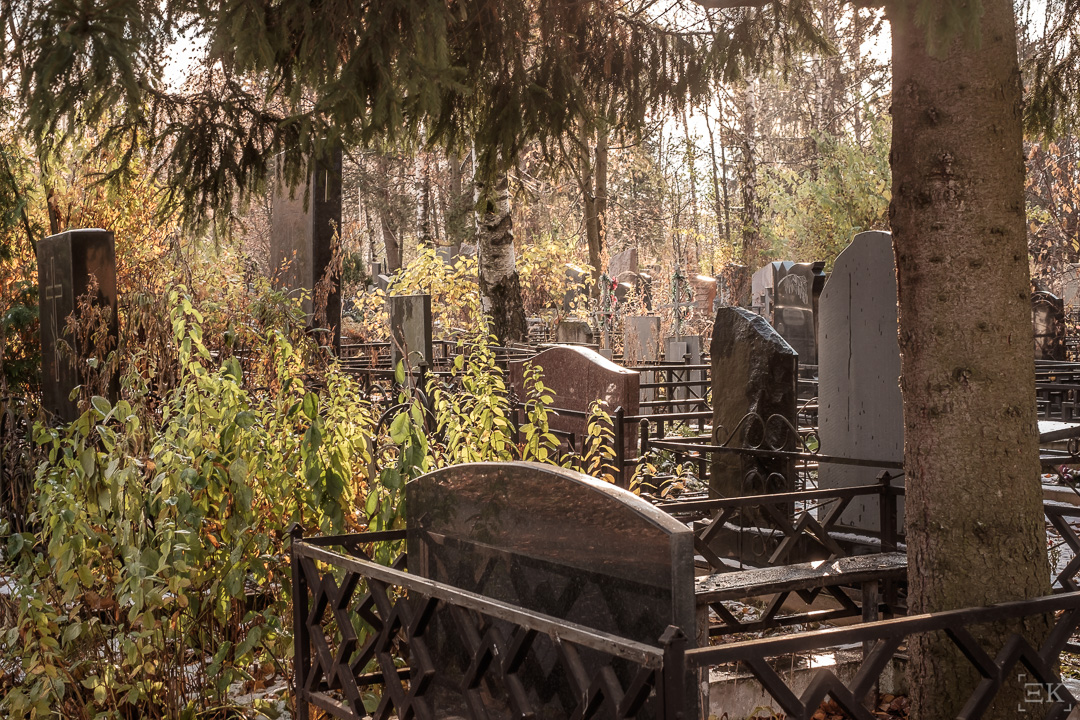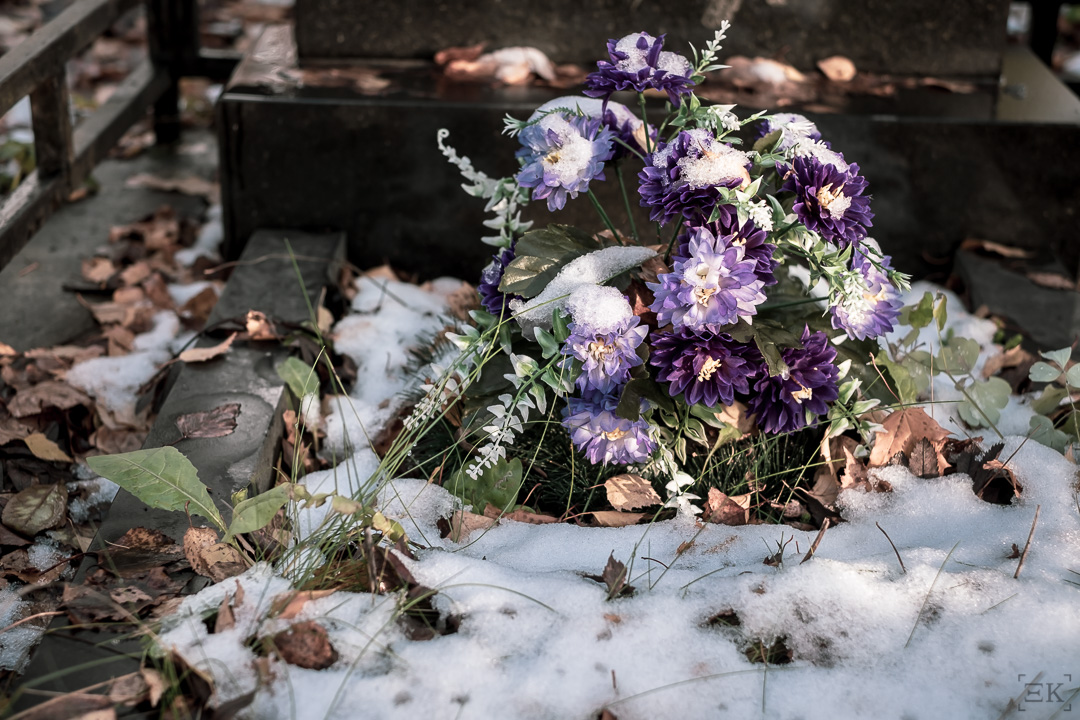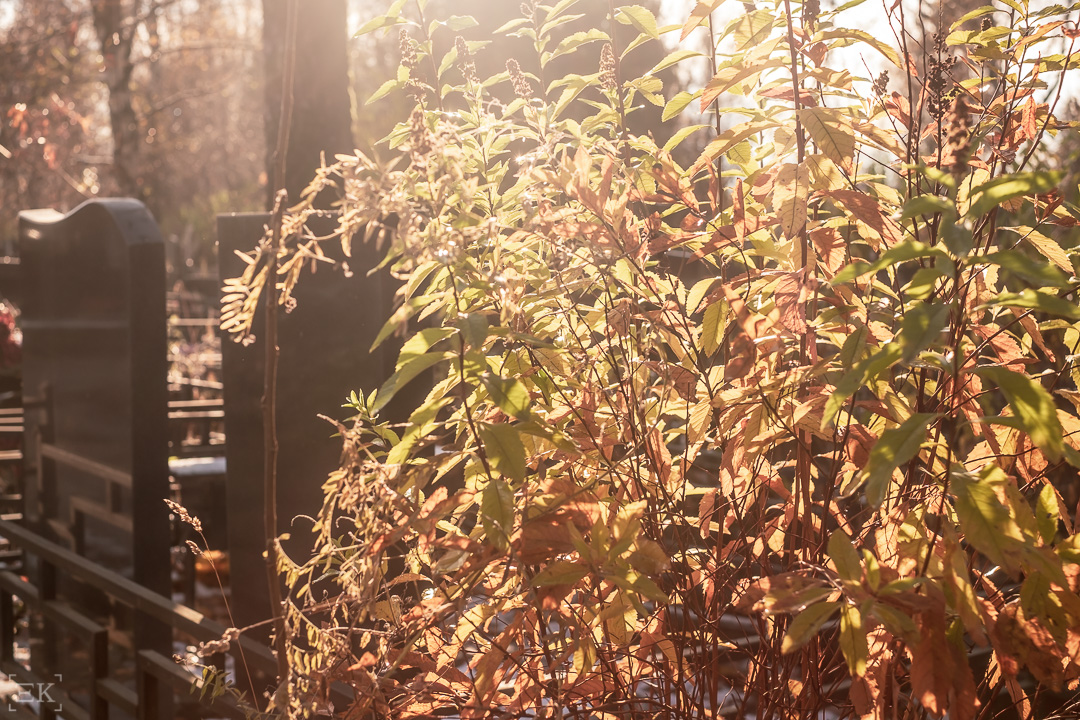WAR IS EVIL
Grace is Brave to Face the Grave
Children playing in the graveyard, shy and quiet but feeling no grief–perhaps just slightly ashamed of being playful in what must be thought of as an inappropriate place for fun. Stately adults with V-shaped eyebrows and tightened lips, wearing expressions as if they have feasted on unripe lemons, feeling displeasure and burdened with thoughts about being placed here sooner or later for eternal preservation. Granite slabs, both upright and lopsided, slowly transforming from black, white, terracotta, brown and green into the democratic and never changing colorless sloppy shade of gray. Smiley grave diggers exhibiting business-like manners mixed with coarse humor and sympathetic smiles, practicing martial arts during their recess; successful philosophers with disarming conceptions. The Universe, the death, the death of the Universe, the universal death.

“These stones tell stories,” mumbles a middle-aged gentleman in a purple scarf as if revealing a secret. He is not talking to anyone, more to himself, but I happen to be nearby and defiantly pretend that I thought he was addressing me.–”Tell me one,” I say to him sharply feeling a sudden desire to sound haughty as if probing the gentleman’s sincerity. I even expect him to startle, frightened by my sudden presence. He looks at me calmly, not disturbed at all, and my cynicism vanishes, falling victim to the warming brightness of his knowledgeable eyes.–”If you excuse me,” the gentleman bows politely, mounts a bicycle leaned over the nearest tree and rushes away, leaving me with my astonishment and growing curiosity. He will never come back.

Sometimes you may guess people’s names from the first glance. “Are you looking for Grace?” I am asked by a girl whose name may only be Grace.–”I am,” I respond, although until an instant ago I had not been looking for anyone. Grace is wearing a red woolen hat, a dark long polar coat and red sharp-nosed boots pointing straight at me. Her mittens are also red, and if I could describe Grace with music, she would sound to me in the C key. She takes off her right mitten, we shake hands and get involved in a slow stroll along the cemetery alley. She does not ask my name. “Whatever brought you here, my task is to show you something,” she says instead and pulls me into a narrow trail covered with fresh snow, withered brown leaves and someone else’s timeless sorrows.

She leads me to a freshly dug grave that smells wet dirt where I see stumps of tree roots cut with sharp shovels. She makes me stand at the very edge, completely destroying the polished look of my new black shoes. She waits until I find my balance, releases my hand and steps back quietly. “She will push me from behind, let me fall down and bury me here alive,” I think without a single trace of fear. She reads my thoughts and responses: “Don’t worry, I know everything about this place–its present, its past, and its future. You are not destined to be buried here. I just wanted to show you this depth. You are a musician, aren’t you? So, fill this pit with music while you have a chance. Tomorrow morning this cavity will only be a coffin and dirt.”

Submissively I start to look around scanning the landscape with caution and trying not to move my head. I am searching for sharp individual notes that will allow me to pack them together into a sudden grave rhapsody. This is the first time I am commissioned to make music at someone’s request, and although this is not a paid work, I know I cannot fail it. My eyes harvest on faded yellow leaves, on frozen orange berries, on dry stems of annual plants. Slowly and gracefully (Grace, are you still here?) the music enters my soul and starts to mourn, to weep with the full power of its solemn harmonies. A funeral march is born of what is dying–a pure manifestation of how death results in new life.

Grace, where are you? The music can still be heard but all of a sudden I start to feel strangely lonely, as if I–a single living being in the entire world–have spent my whole life standing here, at the edge of a grave. She does not answer, but the sound and warmth of her breath lightly touch my cheek and calm me down. Only minutes later she whispers back: “I’m still here.” This is it, the final chord of the newborn rhapsody, as well as its title and underlying thought. I am still here. I still remain.

“What makes you know this place so well?” I ask her, “Why Grace is brave to face the grave?”–”You met my father, didn’t you? A gentleman on a bike with a long purple scarf around his neck. You spoke to him, I saw. He raised me in this place and made me understand it as entirely as the back of my hand. I used to know half of this cemetery’s inhabitants in person, and I know many of those who will be buried here in proper time. What I have been missing for a long time is music, but now I have it, too. So, thank you for the music!” She smiles happily at me, and I do the same: “You’re welcome Grace…”
